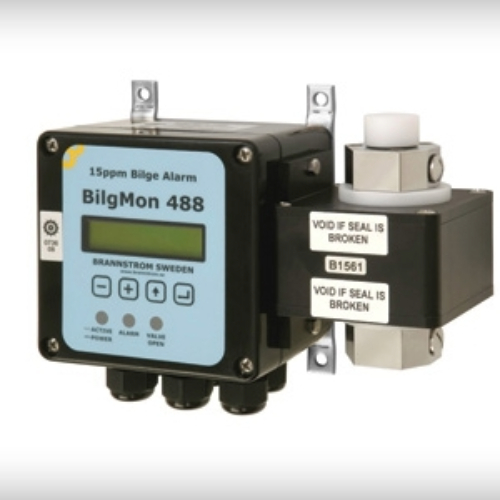
ODME
Calibration Service:
1. System
Verification and Functional Testing:
-Checking the
system's overall functionality, including the alarm and control logic.
-Verifying that
the system correctly calculates the oil discharge rate (in L/NM) based on
inputs from the oil content meter, flow meter, and ship's speed (from GPS).
-Simulating an
alarm condition to ensure the system correctly closes the overboard discharge
valve and opens the slop tank valve, redirecting the oily mixture for further
processing.
2. Calibration
of the Oil Content Meter:
-This is the
most critical part of the service. It involves using a certified test fluid
with a known oil concentration (e.g., 500 PPM) to check the accuracy of the oil
content meter.
-The technician
will flush the measuring cell, introduce the test fluid, and verify that the
analyzer's reading is within the acceptable tolerance, usually ±10%.
-For some
systems, a "zero" calibration using fresh water is also performed.
3. Physical
Inspection and Maintenance:
-Checking for
any leaks in the sample lines, pumps, and valves.
-Inspecting and
cleaning the measuring cell, which can accumulate oil or other deposits that
affect readings.
-Checking and
servicing the automatic cleaning system (e.g., fresh water flush, wiper
blades), which is vital for maintaining the cell's accuracy.
-Verifying the
proper functioning of the sample pump and all pneumatic valves.
4. Documentation
and Certification:
-After the
service is completed successfully, the technician will issue a detailed service
report.
-An
official Calibration Certificate is provided, which must be
kept on board the vessel for inspection by port state control authorities or
classification societies. This certificate typically includes the vessel's
details, the ODME system's specifications, the service date, and the "as-found"
and "as-left" calibration data.
Service
Frequency and Spares
-Annual
Verification: IMO guidelines and regulations generally require an
annual functional check and verification of the ODME system's accuracy. This is
often done during the IOPP annual survey.
-Five-Year
Recertification: Many manufacturers recommend a more comprehensive
calibration and cell renewal every five years, often coinciding with the IOPP
renewal survey.
-Spares: A proper ODME service also includes checking the vessel's onboard spares inventory to ensure it complies with the manufacturer's recommendations and regulatory requirements. This is crucial for quick repairs and minimizing downtime.